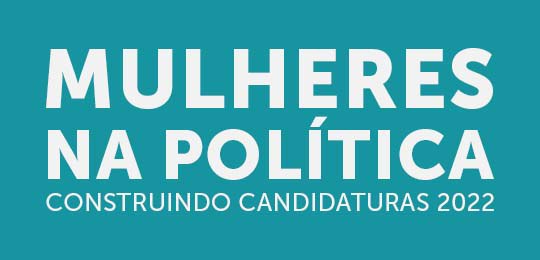The Women in Politics Commission and the Parana District Electoral Court Judicial School (TRE-PR) are promoting the online training course Women in Politics: Forming Candidates in 2022. From October 5 to October 28, classes will be offered to all comers with round-the-clock certification for those who gain at least 75% of the attendance. The limited course is free. Applications are accepted until September 30.
Make registration
Classes will be held on Tuesdays and Thursdays from 19:00 to 22:15 and 23.10 (Saturday) from 8:30 to 10:30, replacing 10.12 (Tuesday), the national holiday. The aim is to raise awareness of the importance of equal participation in politics by providing nominating tools that promote greater equality, fairness and democracy.
Diversity
Flavia da Costa Viana, Chief Justice and Executive Director of the TRE-PR School, said this edition of the course will reflect on the importance of diversity in political debate. “Attention will be paid not only to the need for greater participation of women in public life, but also to other minority groups.”
The judge emphasizes that it is never superfluous to recall the words of Minister Barroso in his inaugural speech to the High Electoral Court (TSE): “The involvement of idealistic and competent women in politics is an important requirement of the country. Women make up half of the population. And black, brown or indigenous people make up half of the women. We need to increase diversity in Brazilian public life. We are a multinational, multiracial, multicultural country. We must realize that this is an asset, a dignity, a privilege that history has given us. “
According to Judge of the 174th Electoral Zone of Curitiba (PR) and President of the Women in Politics Commission, Adriana de Lourdes Simette, “The idea is to convey relevant information about the electoral and electoral process so that when elections approach, women and people involved in politics, regardless of party and ideological nuances, can be better prepared to participate in the next elections. “
The following topics are discussed during the course: legal aspects of women’s participation; political parties; budget and campaign funding; accountability; Communication; ballot box security and verification of electronic voting; registration of the application; democracy; diversity; social networks and civil language.
This is the second edition of a series of lectures that first took place in October 2019. The initiative is part of the Sustainable Development Goals (SDGs) of the 2030 Agenda of the United Nations (UN) Global Compact. In particular, it responds to the goals set in Goal 5, which aims to achieve gender equality and the empowerment of all women and girls. It is also in line with Objective 9 of the judiciary, which encourages action to prevent or reverse litigation related to the 2030 Agenda SDGs.
Schedule
Politics and Women’s Participation: Legal Aspects and the Opinion of Those Who Judge
Ina Barbosa Honda and Sousa – chapter 50 of the electoral zone of Araucaria
Date: 05.10, from 19:00 to 21:00
Political parties
Jaime Barreiros Neto – server of the Bahia Electoral Court
Dates: October 5 from 21:15 to 22:15 and October 7 from 19:00 to 20:00.
Campaign budgeting and funding
Denise Schlickmann – Secretary for Internal Control and Audit of Electoral Justice Santa Catarina
Date: 07.10, from 20:15 to 21:30
Political communication on social networks: has everything migrated to the Internet?
Rubian Kreutz – Public Relations Coordinator of the Electoral Court of the State of Parana
Date: 07.10, from 21:30 to 22:15
Accountability
Paulo Sergio Estevez – Coordinator of Electoral and Party Accounts of the Electoral Court of Paraná
Date: 14.10, from 19:00 to 20:00
Ballot box security and e-voting verification
Roni Cesar de Oliveira – Head of the Ballot Box Administration Section of the Electoral Court of the State of Parana
Dates: 14.10 from 20:15 to 21:30 and 28.10 from 20:45 to 22:15
Civil language: how to communicate in a simple and inclusive way
Melissa Diniz Medroni – Head of Journalism Production at the Electoral Court of the State of Parana
Date: 14.10, from 21:30 to 22:15
Elections, advertising and social media
Ana Carolina de Camargo Cleves – Professor of Constitutional and Electoral Law at the Center for the Autonomous University of Brazil (UniBrasil) and President of the Paraná Institute for Suffrage (IPRADE)
Dates: 19.10 from 19:00 to 20:30 and 26 October from 19:00 to 20:30.
Public Speaking and Campaign Assertiveness
Sirley Masil – Professor of Public Speaking and President of the Institute for Learning, Research and Creature Development (INTREPEDS)
Dates: 19.10 from 20:45 to 22:15 and 26.10 from 20:45 to 22:15
Political communication and women’s campaigns
Luciana Pahnke – Researcher and Professor at the Department of Communication at the Federal University of Parana (UFPR)
Date: 21.10, from 19:00 to 20:30 and from 20:45 to 22:15
Registration of candidacy
Daniel Morgado Maemura – Judicial Secretary of the Electoral Court of Parana
Date: 23.10, from 8:30 to 10:30
diversity in politics
Polianne Santos – Advisor to the Vice President of the Supreme Electoral Court (TSE) and founder of the Feminine Visibility project
Date: 23.10, from 10:45 to 12:15
Political reform, women’s participation and democracy
Ana Claudia Santano – Research Professor of the Higher Education Program in Law of the Autonomous University Center of Brazil (Unibrasil)
Date: 28.10, from 19:00 to 20:30
Service
Course “Women in Politics: Forming Candidates 2022”
When: from 5 to 28 October
Enrollment: from 20 to 30 September
Transmission: via the Zoom platform. An access link will be sent to registered people by email.
A source: TRE-PR
















